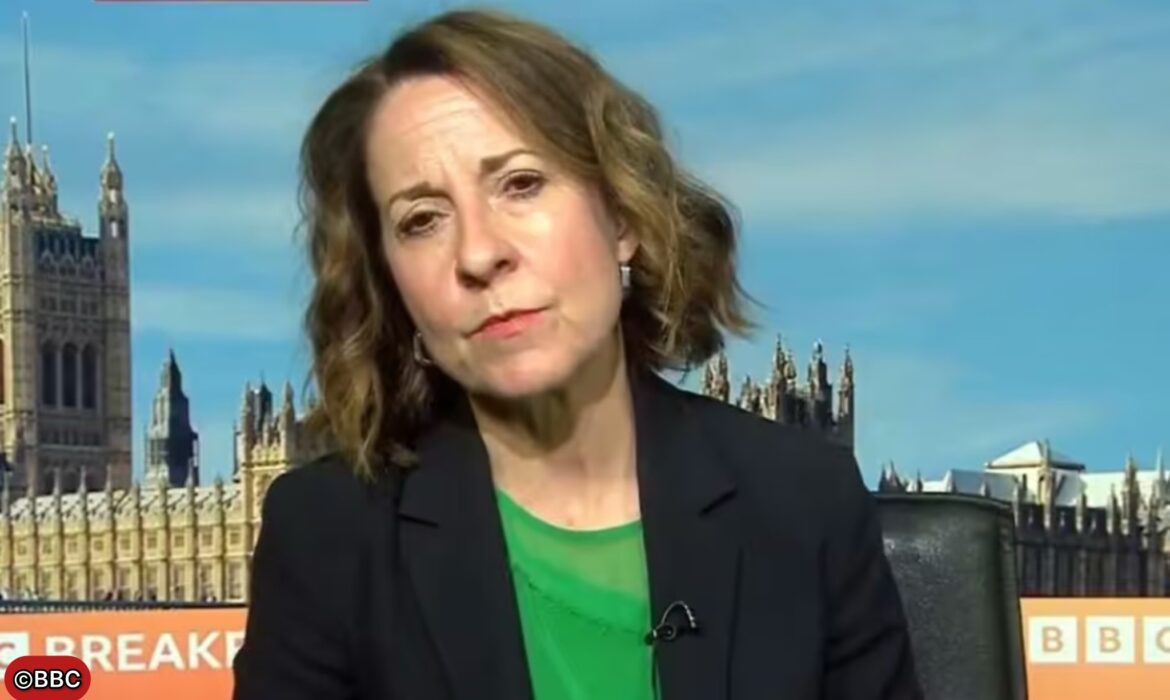Technology Secretary Liz Kendall has been branded “delusional” by BBC Breakfast viewers after suggesting the government is considering digital ID as a solution to illegal immigration. The politician faced a hostile reception during Wednesday’s programme when she discussed the controversial proposal with presenters Jon Kay and Sally Nugent.
Kendall told viewers that Prime Minister Keir Starmer was examining how other countries have implemented digital accreditation systems. She attempted to sell the benefits of the scheme during the interview on September 17.
Keir Starmer, our Prime Minister, has said we are looking at what other countries have done to bring in a digital accreditation,” Kendall stated. “I think there’s real benefits right across here, from obviously dealing with illegal working, but also, actually, if your viewers imagine that they had one credential that would allow them access all the different government services … I do think this could be a real benefit here if there was one route in.”
The Technology Secretary continued to defend the proposal, adding: “As well as the benefits it could have with illegal migration, we’re looking at that and I think it is an interesting idea that other countries have taken on board and we want to learn from what they’ve done.”
However, BBC Breakfast viewers were far from convinced by Kendall’s arguments, taking to social media to express their scepticism and anger at the proposal. The backlash was swift and harsh, with many questioning both the practicality and true intentions behind the digital ID scheme.
One furious viewer posted: “More delusion, similar to AI benefiting the U.K. by 10% over 5 years.” The comment reflected widespread cynicism about government technology promises and their ability to deliver meaningful results.
Security concerns dominated many responses, with a second viewer warning: “Yeah. Digital ID is a really great idea… Right up until the system is hacked and everyone’s personal information is posted on the dark web!” This highlighted public fears about data protection and the government’s track record with IT systems.
Another angry response questioned the logic of the proposal: “How will it help when the dinghy boys throw their documents into the sea? This is not about immigration, it’s about us not complaining about it!! NO!!” The comment referred to migrants arriving by small boats across the Channel, who often arrive without documentation.
Scepticism about the government’s true motives was evident in another viewer’s suggestion: “‘Could be used to help tackle illegal immigration’ No it can’t – its just another excuse to try to get ID cards by the backdoor.” This reflected long-standing British resistance to national identity cards.
The fundamental effectiveness of the scheme was challenged by another BBC viewer who questioned: “How does help with stopping illegal migration? It’s total bollox to say it does, those migrants working illegally are already here doing it.”
The hostile reception to Kendall’s interview highlights significant public opposition to digital ID schemes, particularly when framed as immigration control measures. Many viewers appeared to view the proposal as either ineffective for its stated purpose or as a trojan horse for wider surveillance measures.
The Technology Secretary’s struggle to convince viewers of the scheme’s benefits suggests the government faces an uphill battle in selling digital ID to a sceptical British public. Historical resistance to identity cards in the UK has created a cultural aversion to such schemes.
Kendall’s reference to learning from other countries failed to address specific concerns about privacy, data security, and civil liberties that have traditionally made ID schemes unpopular in Britain. The lack of detail about safeguards appeared to fuel viewer suspicions.
The timing of the proposal, coming amid ongoing controversy over illegal immigration and small boat crossings, led many to question whether digital ID was being used as a distraction from more fundamental policy failures.
The car crash nature of the interview, as described by viewers, suggests the government has significant work to do in building public support for any digital ID system. The Technology Secretary’s inability to address core concerns about effectiveness and privacy left viewers unconvinced.
As the government continues to explore digital ID options, the BBC Breakfast interview serves as a warning about public sentiment. The overwhelmingly negative response indicates that any attempt to introduce such a system will face fierce resistance without clear benefits and robust safeguards.
Follow for more updates on Britannia Daily.



